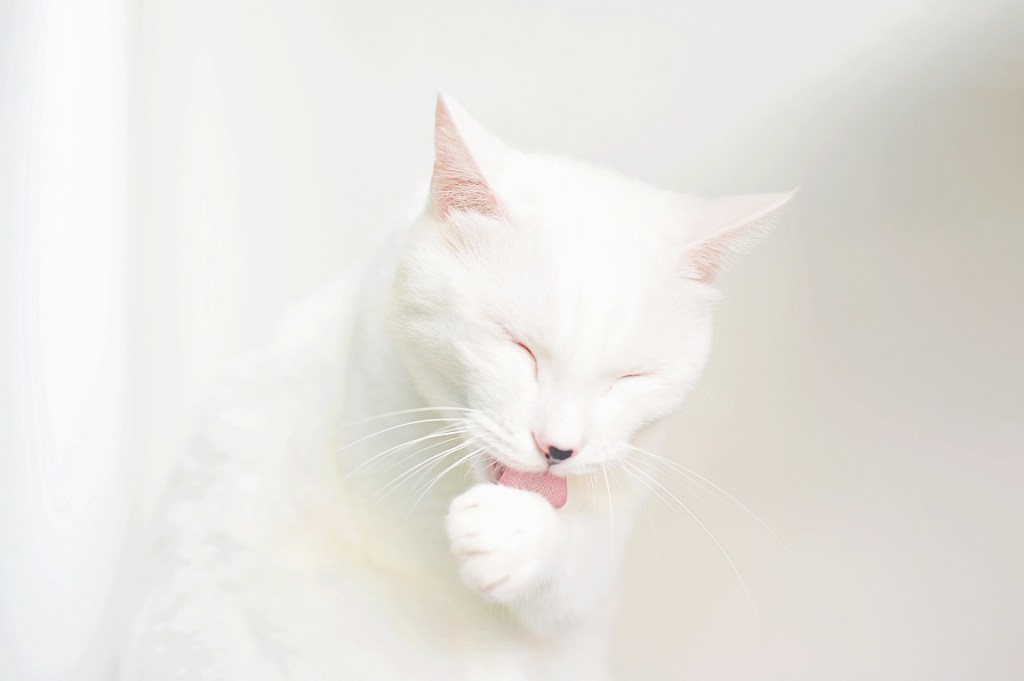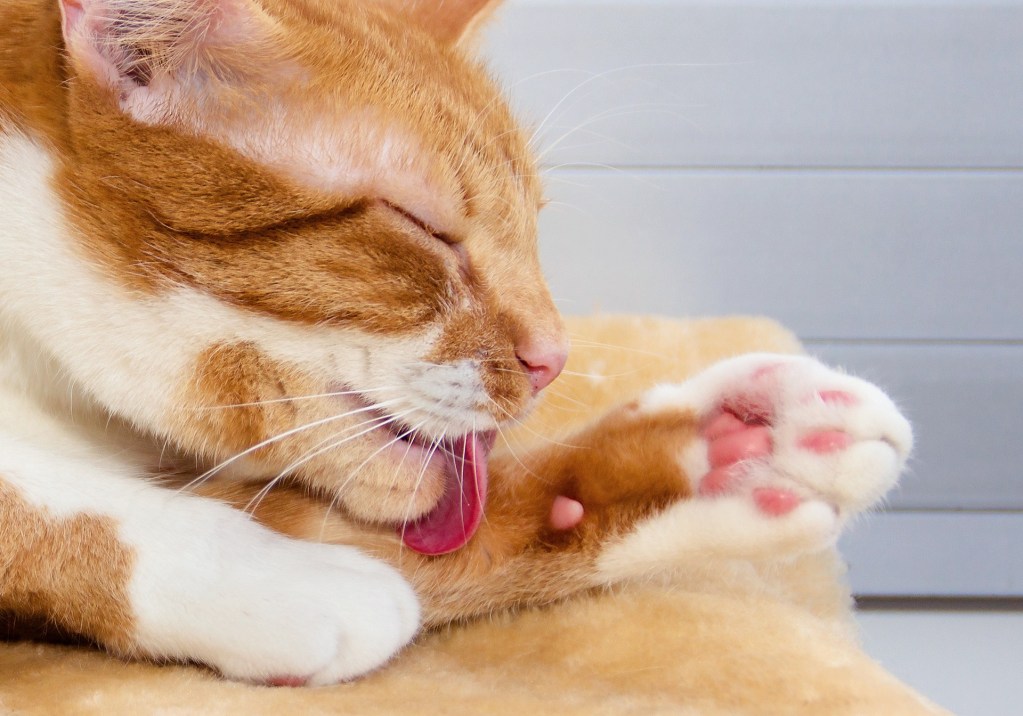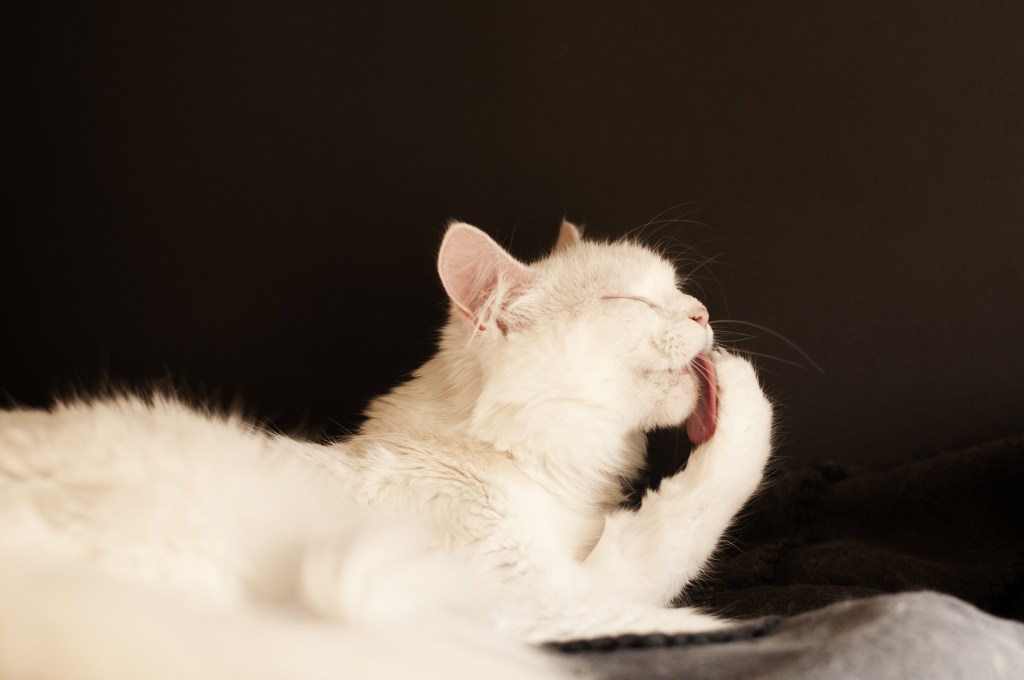When you share your life with cats, certain messes like hairballs are to be expected. It’s a fact of life that cats will vomit up these ‘gifts,’ which you’ll all too often discover with your bare foot in the middle of the night. Even though hairballs are common among cats, they’re not always as harmless as you would think.
In fact, the frequency at which your cat vomits up hairballs could provide you with important data and warning signs about potential health issues. If you’re not yet tracking how often your cat vomits up hairballs, now is the time to start — you could learn important information about your cat’s health.
What are hairballs? How frequently should they appear?

Cat hairballs are, to an extent, a normal part of life for your kitty. Cats swallow and ingest hair while they groom themselves, and when that hair becomes too much for their stomachs to digest, they vomit up a hairball.
While some hairballs are to be expected, it can be difficult to tell when your cat hacks up too many of them. It’s even harder to tell what causes an increase in hairball production! Factors like how much hair your cat has and how fastidiously he grooms himself can affect the number of hairballs he produces. On average, however, expecting a cat to have one hairball per week is reasonable.
But if your cat starts producing hairballs more frequently, that could indicate an underlying health condition. In some rare cases, hairballs can become stuck within your cat’s digestive system, causing them to become less frequent than normal. So, if you suspect something is amiss with your cat’s hairball production, be sure to call your vet.
Frequent hairballs and your cat’s digestive health

If your cat’s digestive system can’t move the hair through, your cat forms a hairball. So, if your cat is frequently vomiting up hairballs, this could indicate that he’s experiencing a digestive issue.
Food intolerance, intestinal parasites, or even kidney disease could all contribute to this increased vomiting. Sometimes, digestive issues are related to the bacteria in your cat’s stomach. If that bacteria becomes imbalanced, it can lead to issues like inflammatory bowel disease, which causes–you guessed it–vomiting.
Some of these issues can be fairly easily fixed. Changing your cat’s food might help reduce his vomiting frequency and hairballs. Your vet might be able to diagnose your cat based on symptoms alone, but they might also recommend a diet change to rule out food allergies or take X-rays of your cat’s abdomen.
If you hear your cat vomiting, check frequently to see if he’s actually vomiting up a hairball or just coughing. Cats who just cough can be experiencing other health issues, including respiratory problems and lung conditions. Providing your vet with this information can help with your cat’s diagnosis.
Frequent hairballs and overgrooming

Your cat might also be producing frequent hairballs because of overgrooming. If your cat seems to fixate on grooming himself or grooms himself too intensely, he could be swallowing more hair than normal, leading to the hairball issue.
Multiple issues can cause overgrooming:
- Some cats overgroom because of anxiety, which large life changes, like a move to a new house might prompt.
- Allergies can also contribute to overgrooming, as your cat may groom itself to relieve the discomfort of dry, itchy skin.
- If your cat has fleas, he might groom himself excessively to relieve the itching.
- Food allergies and skin sensitivities can also cause overgrooming.
Your vet may examine skin samples and ask questions about your cat’s behavior to determine what’s causing his overgrooming. You might need to explore diet changes, flea treatments, and medications or supplements to support your cat’s skin health and treat the issue.
Symptoms of hairball-related concerns

It can be tricky to tell whether your cat is dealing with a hairball problem or is just feeling under the weather. Instead of looking for symptoms of an illness, it will be easier to look for signs of a hairball. Besides vomiting, coughing, and making hacking sounds, you should watch your cat for the following signs:
- Boating
- Lethargy
- Refusal to eat and drink
- Wheezing, gagging, or retching
- Diarrhea or constipation
- Weight loss
A combination of these symptoms could mean they’re dealing with an impacted hairball. While the hairball won’t choke or cut off the air supply, it’s just as important to get veterinary treatment if you’re unable to lend a hand yourself.
If you suspect your cat’s hairball production is too frequent, then a trip to the vet is in order. Your vet can thoroughly examine and evaluate your cat for potential health issues. If your vet determines all is normal, you can help reduce your cat’s hairball production through thorough, regular grooming. Your vet might also recommend oral hairball aids to help your cat pass ingested hair. If your cat has fleas, then treating the fleas may reduce his grooming and the hairballs he’s producing. Getting to the bottom of a hairball issue can take some time, but it’s important to ensure no health issue is causing the problem.



